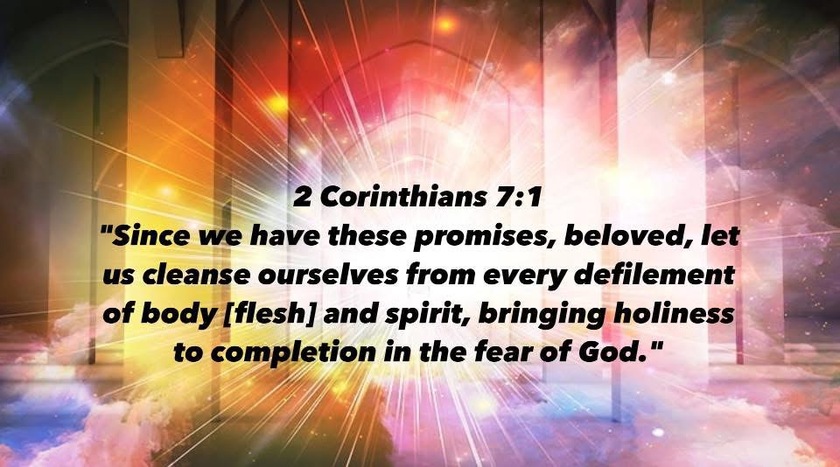The Exchange of the Truth: Idolatry and Twisted Truth
Acts 7:41-43
And they made a calf in those days, and offered a sacrifice to the idol and were rejoicing in the works of their hands. But God turned away and gave them over to worship the host of heaven, as it is written in the book of the prophets:
"‘Did you bring to me slain beasts and sacrifices, during the forty years in the wilderness, O house of Israel?
You took up the tent of Moloch and the star of your god Rephan, the images that you made to worship;
and I will send you into exile beyond Babylon.’"
Today's focus scripture for our devotion serves as a stark reminder of humanity’s tendency toward idolatry and the consequences of turning away from God. These verses are part of Stephen’s extended defense in Acts 7, where he is accused of blasphemy against Moses, the law, and the temple. Stephen zeroes in on the wilderness wanderings after the Exodus, highlighting the golden calf incident. This act of idolatry wasn’t just a one-off mistake; it symbolized a deeper rejection of God’s deliverance and a return to the pagan influences they had left behind in Egypt.
Stephen quotes the prophet Amos to show how these Hebrews had been giving their offerings, and how they were hollow. They mixed their offerings with worship of Moloch (a Canaanite god associated with child sacrifice and detestable practices, as in Leviticus 18:21) and Rephan (tied to astral worship). These were "images that you made to worship," emphasizing handmade idols over the invisible God. This passage isn’t just ancient history; it’s a mirror for our own hearts. Just as the Israelites rejoiced in their handmade calf, we can idolize our own "works"; our education, careers, possessions, technology, and even religious rituals, (sacramentalism, asceticism, Hagiolatry, and other traditions of men), placing them above God and leaving off faith in Christ alone.
It’s a powerful reminder of how easily we can drift into idolatry, even under the guise of spiritual practices.
Colossians 2:8
See to it that no one takes you captive by philosophy and empty deceit, according to human tradition, according to the elemental spirits [principle] of the world, and not according to Christ.
These “traditions of men,” can subtly become handmade idols when they supplant the pure gospel.
At the end of the day these "men" who create these "traditions" are subjecting "the Truth" to spin like lawyers do, using chicanery. There's a word for this, its casuistry, which refers to the application (or often misuse) of general ethical or legal principles to specific cases in a way that involves clever, subtle, or overly intricate reasoning, frequently with the intent to justify questionable actions or gain an advantage, even if it distorts the underlying truth. This term carries a pejorative connotation, implying sophistical or dishonest manipulation, such as twisting moral or legal rules to excuse behavior that would otherwise be condemned. This is what lawyers do, so called "doctors of the law".
I had a discussion yesterday with a very young twenty-something who is interning with a law firm. And I found it interesting to discuss with him about this feature of the law practice. One of his jobs is to do exactly this, to research the law and look for a way to twist the facts in such a way as to sell their position to a court of law. Ironically, it's not unlike my own job in some ways. I design, envision and engineer landscape designs, and I contract that work. I'm motivated to manipulate information in such a way as to ensure that my clients expectations are aligned with my own ends. I'm not going to envision something I can't produce or provide for them, that's obvious. So, even though I could envision it, it just doesn't serve my purpose to do that. So I imagine pretty much everyone is subverting the truth about something somehow in their lives. It's the human thing to do.
Idolatry often isn’t born in a vacuum but arises from a deliberate distortion or "exchange" of divine truth to craft something more palatable or self-serving, essentially fabricating a "god" that aligns with personal desires, power, or comfort rather than submitting to the one true God. This isn’t just a modern observation; it’s deeply rooted in Scripture, where idolatry is frequently depicted as twisting revealed truth into falsehood for one’s own benefit, leading to spiritual adultery against God.
Romans 1:21-25
"For although they knew God, they did not honor him as God or give thanks to him, but they became futile in their thinking, and their foolish hearts were darkened. Claiming to be wise, they became fools, and exchanged the glory of the immortal God for images resembling mortal man and birds and animals and creeping things.
Therefore God gave them up in the lusts of their hearts to impurity, to the dishonoring of their bodies among themselves, because they exchanged the truth about God for a lie and worshiped and served the creature rather than the Creator, who is blessed forever! Amen."
This exchange isn’t accidental; it’s motivated by a desire to avoid accountability to God’s righteousness, allowing people to pursue their own agendas under the guise of “worship.” The benefit? A god that doesn’t demand holiness or challenge sin, but instead affirms human pride, lust, or greed.
The heart of idolatry is an intentional "exchange" of God’s truth for self-crafted lies. Often, it's a disingenuous application of principles to bend outcomes; to the biblical critique of legal experts who prioritize human advantage over divine intent. In the Gospels, Jesus repeatedly confronts the Pharisees and scribes, whom Luke calls "doctors of the law" (Luke 5:17), for their casuistic practices. These were scholars trained in intricate interpretations of the Torah, but they often used their knowledge to exploit loopholes, justifying burdens on others while excusing themselves, and maintaining their power.
Example:
Jesus denounces their oath-swearing casuistry: They declared oaths by the temple to be "nothing," but by its gold binding; a clever spin to evade commitments, turning sacred truth into a tool for personal gain.
Matthew 23:16-22
"Woe to you, blind guides, who say, ‘If anyone swears by the temple, it is nothing, but if anyone swears by the gold of the temple, he is bound by his oath.’ You blind fools! For which is greater, the gold or the temple that has made the gold sacred? And you say, ‘If anyone swears by the altar, it is nothing, but if anyone swears by the gift that is on the altar, he is bound by his oath.’ You blind men! For which is greater, the gift or the altar that makes the gift sacred? So whoever swears by the altar swears by it and by everything on it. And whoever swears by the temple swears by it and by him who dwells in it. And whoever swears by heaven swears by the throne of God and by him who sits upon it."
Just like in the wilderness idolatry mentioned in Acts 7. The Israelites didn’t outright deny God; they instead twisted His deliverance into a calf-worship hybrid, perhaps rationalizing it as a "visible aid" to their faith (Exodus 32:5). Sound familiar? I hear this sort of rationalizing from Orthodox and Roman Catholic adherents all the time. Similarly, the adoption of Moloch and Rephan involved casuistic blending into their religious practices: "We’ll offer to Yahweh, but hedge with these stars for extra blessing." Their sacrifices were a facade, distorted to serve comfort and control rather than genuine obedience. They've been taken captive by man-made rules (traditions) that masquerade as depth but enslave, much like casuistry’s overly intricate reasoning, supplanting Christ’s simplicity.
Conclusions:
Today they create religious systems where doctrines are spun to affirm prosperity without sacrifice, inclusivity without repentance, or authority without accountability; all exchanges that fabricate a tame "god" for their own benefit. At its core, this idolatry-through-distortion stems from a refusal to honor God as He is. It’s not ignorance but suppression. We know His glory through creation and conscience, yet we darken our hearts with the creation of our own hands to avoid the light of His righteousness. The benefit is a custom made god that endorses our pride (intellectual casuistry), lust (moral loopholes), and greed (prosperity spins).
The church literally means called out ("called-out assembly" ). An assembly of people summoned or gathered for a purpose, often implying separation from the broader society. Out from Jerusalem. Out from the way things used to be done by the father's of old. The true church isn’t merely a religious structure or tradition-bound group but a people called out from the world’s deceptions; idols like casuistic twists, human philosophies, or self-serving fabrications, and into the light of Christ’s unadulterated gospel. As 1 Peter 2:9 puts it, believers are "a chosen race, a royal priesthood, a holy nation, a people for his own possession, that you may proclaim the excellencies of him who called you out of darkness into his marvelous light." These callings demand separation from the "elemental principles" and the exchanges of the truth we’ve discussed, urging us to live as a distinct assembly honoring the Creator over creatures.
The cost for our idolatry is exile, a spiritual Babylon. The church is "given up" to her lusts, experiencing the dishonor and futility of serving the creature over the Creator.
Just as the Israelites were called out of Egypt but fell into idolatry’s snare (Acts 7:41-43), we’re summoned from spiritual bondage to purity. Yet, as Colossians 2:8 cautions, human traditions can recapture us if we let casuistry redefine our calling.
Today, reflect: Am I living as one truly "called out," or blending back into the world’s shadows?
Prayer:
Heavenly Father, King of the Universe, thank You for calling us out through Your Son Jesus. Keep us from exchanges that dilute our identity as Your Church. Empower us to proclaim Your light amid the darkness of human untruths. In Jesus' name, Amen.




















